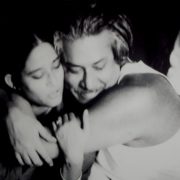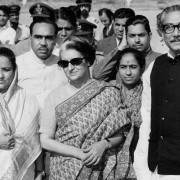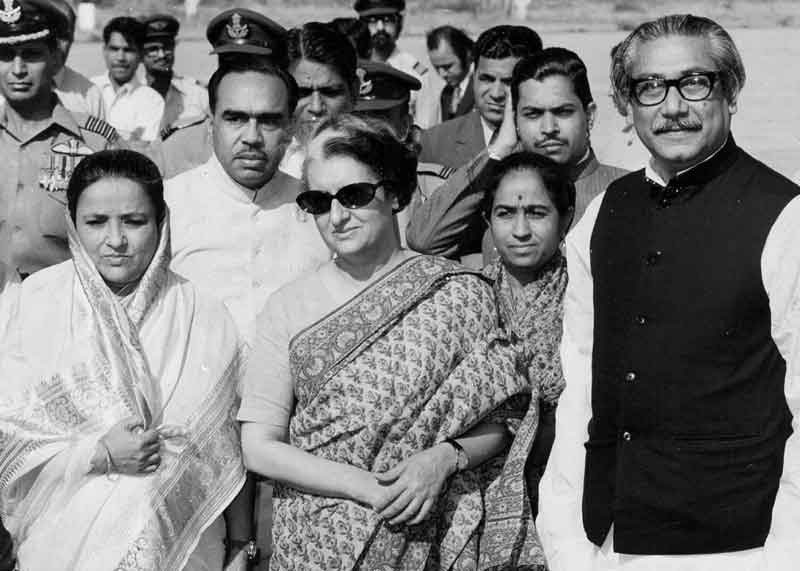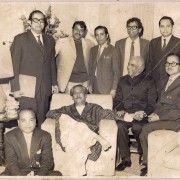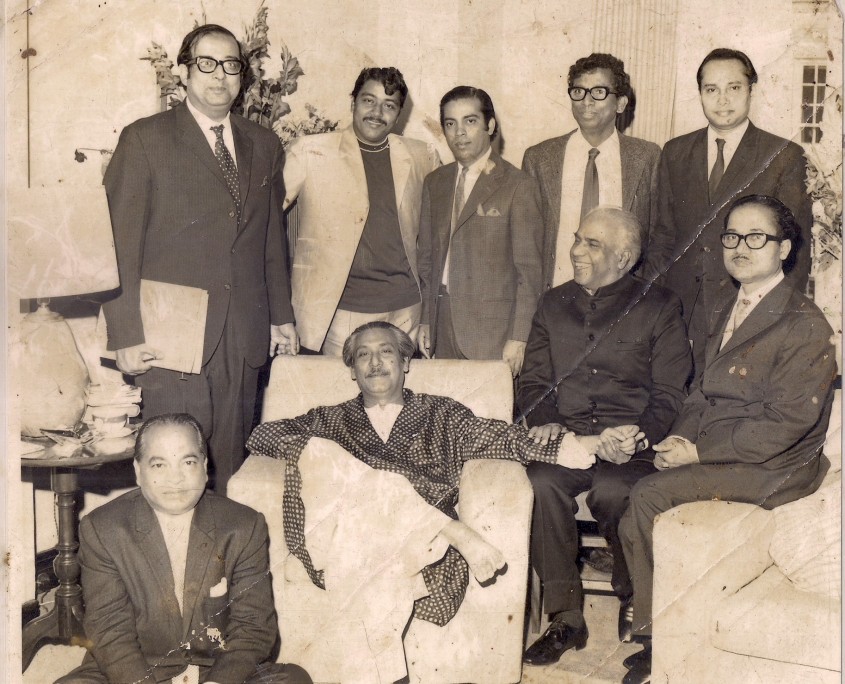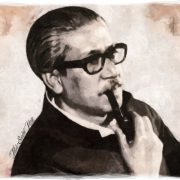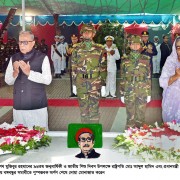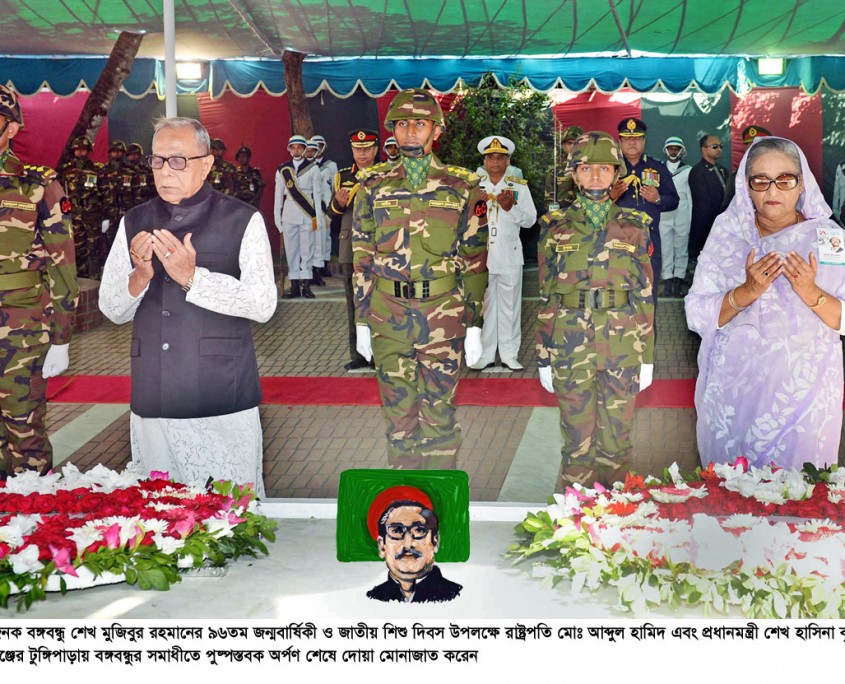The killers of Bangabandhu Sheikh Mujibur Rahman are still hatching conspiracy to turn Bangladesh a failed state, freedom fighters, academics and civil society members in Rangpur said. Rangpur City Mayor and valiant freedom fighter Alhaj Sarfuddin Ahmed Jhantu said the anti-liberation forces and the killers of Bangabandhu are still hatching conspiracies to turn Bangladesh into a failed state.
As part of the new conspiracy, they carried out the recent militant attacks, killing innocent foreign and local citizens to destabilise the country, he said. Vice-chancellor of Begum Rokeya University Professor Dr AKM Nurun Nabi said Bangabandhu was assassinated at such a crucial time when he had engaged himself in restructuring the war-torn nation with the spirit of the War of Liberation.
“We would never get independence without Bangabandhu,” he said and asked all to become united for resisting the anti-liberation forces who assassinated Bangabandhu to reverse our hardly-earned independence. Legendary freedom fighter Taramon Bibi, Bir Pratik, said the pro-Pakistani perpetrators assassinated Bangabandhu as part of a deep-rooted conspiracy to reverse the spirit of the War of Liberation and destroy dream of independence.
“I cannot believe even today that Bangabandhu might be killed on the just-liberated soil where the great leader sacrificed and spent every moment of his whole life for serving the purpose of the Bengali nation,” she said. President of Rangpur unit of Ghatok-Dalal Nirmul Committee Dr Mofizul Islam Mantu said the pro-Pakistani killers took control of state power after assassinating Bangabandhu, frightened the people and putting many of the freedom fighters and politicians into jail.
“Bangladesh has already achieved the status of low middle income state on its way to become a middle income country by 2021 and a developed nation by 2041, taking proper revenge of Bangabandhu’s assassination,” he added.
Assistant Professor of Begum Rokeya University Dr Tuhin Wadud said the deep-rooted conspiracy to reverse independence and spirit of War of Liberation through assassination of Bangabandhu finally failed.
“The nation has already completed the trial of Bangabandhu’s killers and executed most of them while the process for bringing back the fugitive killers is going on,” he said.
Rangpur district Commander of Bangladesh Muktijoddha Sangshad Mosaddek Hossain Bablu said the conspirators assassinated Bangabandhu, the most popular world leader of the time, stunning the nation and the whole world community. Chilmari upazila chairman Shawkat Ali Sarker, Bir Bikram, said the perpetrators wanted to bury spirit of the War of Liberation in a bid to revive Pakistan through killing the architect of Independence Bangabandhu and his family members.
“The common people remained indoors as military, paramilitary and police forces were patrolling the cities and towns, imposing indefinite curfew and arresting many during the post August 15 assassinations,” he said.
Amidst the most insecure situation people tried to bring out processions at many places to protest the killing of Bangabandhu, Panchagarh District Muktijoddha Commander Mirja Abul Kalam Dulal said. Former Treasurer of Begum Rokeya University Professor Mozammel Haque said the perpetrators created a reign of terror then through arresting Bangabandhu lovers, freedom fighters and were spreading propaganda to create panic in the society.
Valiant freedom fighter and cultural personality Akbar Hossain said Bangladesh is successfully moving fast to become Sonar Bangla as dreamt by Bangabandhu under dynamic leadership of his daughter Prime Minister Sheikh Hasina.
By Mamun Islam


